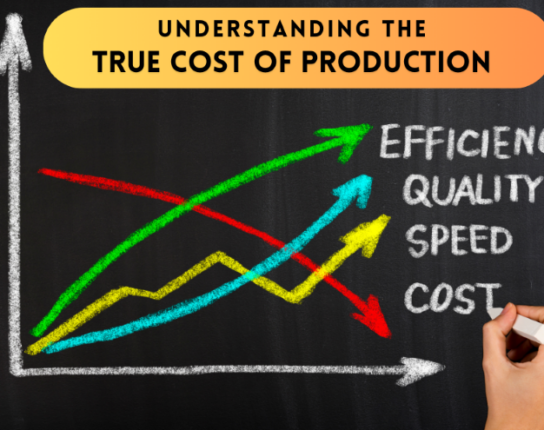As your food business flourishes, you’re likely reaching a point where accounting software such as QuickBooks no longer aligns seamlessly with your expanding operational needs. But does the thought of migrating to a more robust ERP solution like Dynamics 365 Business Central seem daunting and complex?
The move to a system that better caters to the intricate demands of your growing food and beverage enterprise is actually more manageable than you might anticipate. Let’s explore how this transition can be a smooth, well-orchestrated process towards enhanced efficiency and scalability.
Understanding the Need for Change
As operational demands become more complex, it becomes crucial to recognize the specific features that your business is missing and the benefits you stand to gain by transitioning to Business Central.
QuickBooks, while excellent for basic accounting needs, falls short in areas critical for manufacturing businesses. Features such as real-time inventory tracking, lot traceability, and detailed cost analysis are not within its scope. These limitations can hinder the ability to efficiently manage expanding operations and to understand the intricate cost structures associated with manufacturing.
In contrast, migrating to Business Central opens up a world of advanced functionalities tailored to the unique needs of the food and beverage industry. The move not only provides enhanced capabilities in inventory management and costing but also offers comprehensive insights into every aspect of your business operations (we discuss the difference between the two systems in greater depth in a previous article.)
This transition marks a significant step towards a more integrated, data-driven approach, enabling your business to navigate the complexities of modern manufacturing with greater ease and precision.
The Migration Journey
The transition from QuickBooks to Business Central can be made as pain-free and effective as possible with proper planning and execution:
- Data Preparation and Clean-up: Begin by evaluating and organizing your data within QuickBooks. This step involves sorting through your inventory records, financial data, and customer information to ensure that only the most relevant and accurate data is transferred to the new system.
- Choosing the Right Migration Tools: Leverage migration tools that are specifically designed for Business Central. These tools facilitate a smoother data mapping process and ensure an efficient transfer of information from QuickBooks, reducing the risk of data loss or corruption.
- Customization and Integration: Business Central offers extensive customization options to meet the unique requirements of your manufacturing business. This stage involves tailoring the system to integrate seamlessly with your existing workflows and connecting with other essential systems and applications.
- Staff Training and Adoption: An integral part of the migration is training your staff to effectively use Business Central. Despite its advanced capabilities, Business Central is known for its user-friendly interface, which eases the learning curve.
- Phased Implementation: Consider implementing Business Central in phases. Start with the most critical functionalities and gradually introduce more complex features. This phased approach allows your team to adapt to the new system without being overwhelmed and ensures that each aspect of Business Central is optimally utilized.
Maximizing Business Central: Enhanced Capabilities for Food & Beverage Manufacturers
After moving from QuickBooks to Business Central, food and beverage manufacturers gain access to a suite of advanced features:
- Advanced Reporting and Analytics: Business Central’s integration with Power BI provides a comprehensive and interactive view of business operations, enhancing strategic decision-making.
- Efficient Management of Multiple Entities and Currencies: Ideal for managing operations across various regions and currencies, Business Central streamlines complex business structures, simplifying transactions and financial consolidation for businesses with a global footprint.
- Scalability for Expanding Operations: Built on the robust Microsoft Azure platform, Business Central is designed to scale effortlessly with growing transaction volumes and user numbers, a vital feature for expanding businesses.
- Broad Integration with Applications: Connect to a wide range of applications through Microsoft AppSource, enabling tailored solutions that boost productivity and streamline various business processes.
- Strong Compliance and Audit Controls: Business Central adheres to Generally Accepted Accounting Principles (GAAP) and offers enhanced audit controls. This is crucial for the highly regulated food and beverage industry, ensuring compliance and financial integrity.
- Holistic Financial Management: By integrating various aspects of business operations, get a unified view of your business for efficient management of different departments.
A Strategic Move for Growth
Transitioning to Business Central offers a robust foundation for food and beverage manufacturers seeking enhanced accounting and operational management. Harvest Food Solutions – a solution designed explicitly for your industry’s unique demands – not only facilitates easy migration and scalability, accommodating diverse growth rates without constraints on records or transactions, but it also elevates your capabilities in advanced reporting and integrated financial management.
With the backing of Microsoft’s robust technology, Harvest Food Solutions ensures that your business is equipped with industry-leading tools, offering reliability and performance tailored to the food and beverage sector. This is more than an upgrade; it’s a strategic move towards comprehensive business optimization, where advanced functionality meets industry-specific innovation. Ready to accelerate your growth with a system that understands and caters to your business needs? Then let’s talk!










